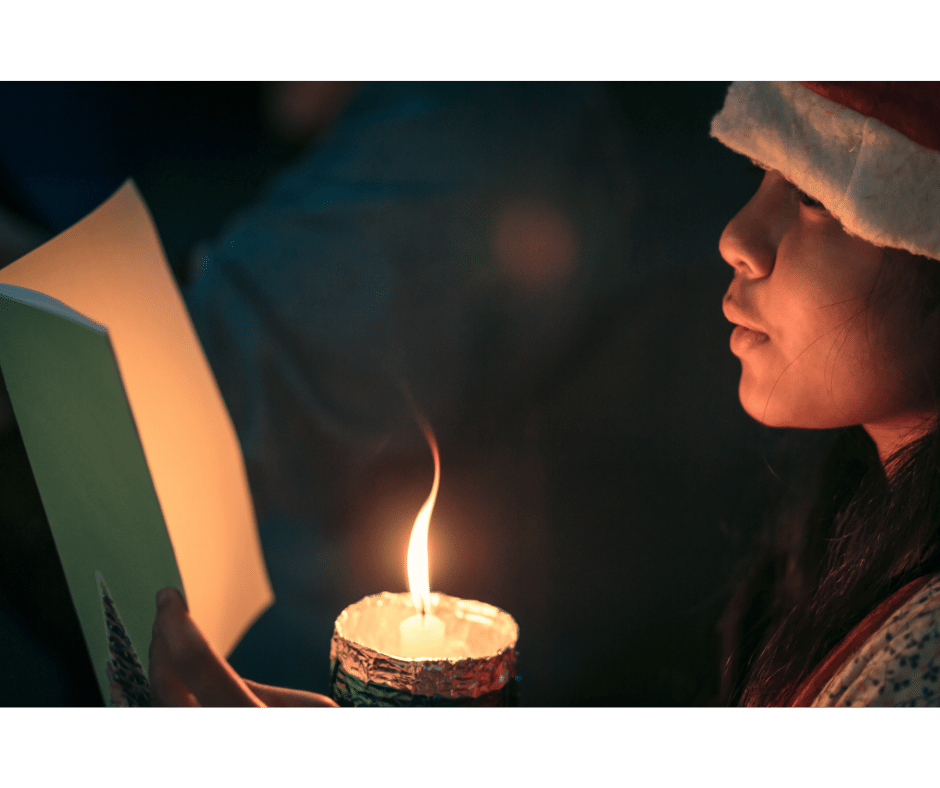“God Bless Us, Every One” — Tiny Tim
Lessons from Charles Dickens’ “A Christmas Carol” keep me grounded during the holiday season.
Our holiday traditions are morphing a little as the kids grow older. Watching “Polar Express” on the night we put up the Christmas tree. Laughing through “The Christmas Story,” which shows a family that could be ours, if we’d lived in the 1950s. When the kids were little, there was “Arthur Christmas,” ”The Grinch,” and many more. “Elf” and “A Charlie Brown Christmas.”
But as holiday traditions go, one of my favorites is going to see “A Christmas Carol” at the Alley Theatre in Houston.
Charles Dickens wrote his novella, “A Christmas Carol,” back in 1843. Little did the author know that, 179 years later, families all over would include his story in their annual Christmas traditions. Little did he know that his words — “Scrooge” and “Bah-Humbug” and “God bless us, every one,” — would carry forth through the generations.
I would guess that many people have some familiarity with “A Christmas Carol.” Maybe you’ve read the book, or maybe you’ve seen the Disney movie with Jim Carrey. A child this week told me she watched a Muppets version I didn’t know existed.
On the surface, the story is about a grumpy, stingy, miserable man named Scrooge. He is a miser, refusing to help the poor, declining to spend time with family or friends at Christmastime. The story is about his Christmas Eve transformation.
When my kids were young, they didn’t absorb the larger themes of the story: human charity and kindness. They simply saw a man named Scrooge and the Ghosts of Christmases Past, Present, and Yet to Come. They especially remembered the ghost of Scrooge’s miserly business partner, Marley, banging his heavy chains around the stage.
Scrooge is visited by the ghost of Marley. “You are fettered,” said Scrooge, trembling. “Tell me why.”
“I wear the chain I forged in life,” said the Ghost. “I made it link by link, and yard by yard; I girded it on by my own free will, and of my own free will I wore it.”
Each year I wonder: What chains am I forging for my own life? Into what am I choosing to invest energy that is and will weigh me down? Definitely control and perfectionism. Probably bitterness, shame, and resentment, too.
Scrooge then goes on to visit his past, present, and future. If I had a superpower, I would choose time travel. I would love to visit my Christmases past. I would see my parents in their prime, gathering around our tree and making preparations for church services and celebrations. I would visit my never-met relatives as they were in 1843, at the time the novella was written. What were their Christmases like then? Were they happy? Were they charitable or miserly?
In traveling to the past, would I want to face the happy times only, or take a second look at childhood wounds as well? It always brings tears to my eyes when Scrooge watches the scenes from his lonely childhood with the Ghost of Christmas Past.
Would I be shown the times I acted with materialism or greed, like when Scrooge is shown his refusal to help those less fortunate?
When I look at my Christmases in the present, would I be doing enough? My son’s school had an Angel Tree to buy gifts for students who cannot afford Christmas this year. I meant to go into the school and get a name from the tree, but I never did, and why? I was too busy? Too lazy to walk inside? Didn’t take the time?
Living in the present, I must look at and face my own truths. The times when I could be a better daughter, sister, mom, wife or friend. The times when I didn’t have the energy to give to those in need.
In my time travel, I would love to visit my Christmas futures, to see what happens to my three now-teenage children as they grow up and make traditions of their own. What will the last Christmas of my life be like? Will I be alone? Surrounded by my family and friends? In good health or frail?
In traveling to the future, would I choose to see only happy events? Would I want to face my husband’s or childrens’ potential heartbreaks, illnesses, or death? Would I want to know? It is a touching, poignant scene when Scrooge visits the home of his employee, Bob Cratchit, to see that his disabled son, Tiny Tim, has died.
I wonder how it would change my life if I could watch scenes of my own life through the years, guided by spirits that help me learn from the past, cherish the present, and hope for the future.
It is striking to me that 179 years have passed and we have the same societal issues in 2022 that bothered Charles Dickens in 1843. There are still inequities between the haves and have-nots. There are still those who would say, with regard to the poor, “Are there no prisons? Are there no workhouses?” There are still Scrooges and still Tiny Tims. The threads of humanity touch each of our lives. The characters from this 1843 novella live among us, even now.
As my kids get older, I think it’s even more important to take a break from the hustle and bustle of secular Christmastime and tend to this story, year after year. The lessons mature with them — the story is no longer just about ghosts.
And I hope I will learn in life the lesson that Marley learned in death. Instead of the business of buying and wrapping gifts, I will remember: “Mankind was my business. The common welfare was my business; charity, mercy, forbearance, benevolence, were all my business. The dealings of my trade were but a drop of water in the comprehensive ocean of my business!”
Once Scrooge awakens on Christmas morning a changed man, he declares, “I will honour Christmas in my heart, and try to keep it all the year. I will live in the Past, the Present, and the Future. The Spirits of all three shall strive within me. I will not shut out the lessons that they teach.” I pray this year that I, too, will heed the lessons I need to learn.
Scrooge’s nephew says of his own Christmas spirit, “But I am sure I have always thought of Christmastime, when it has come around — … — as a good time; a kind, forgiving, charitable, pleasant time; the only time I know of, in the long calendar of the year, when men and women seem by one consent to open their shut-up hearts freely, and to think of people below them as if they really were fellow-passengers to the grave, and not another race of creatures bound on other journeys. And therefore, uncle, though it has never put a scrap of gold or silver in my pocket, I believe that it has done me good, and will do me good; and I say, God bless it!”
The advice and opinions herein are by no means meant to be a substitute for professional medical advice. Please contact your personal physician, mental health provider or health care professional for medical advice. Opinions are my own.


